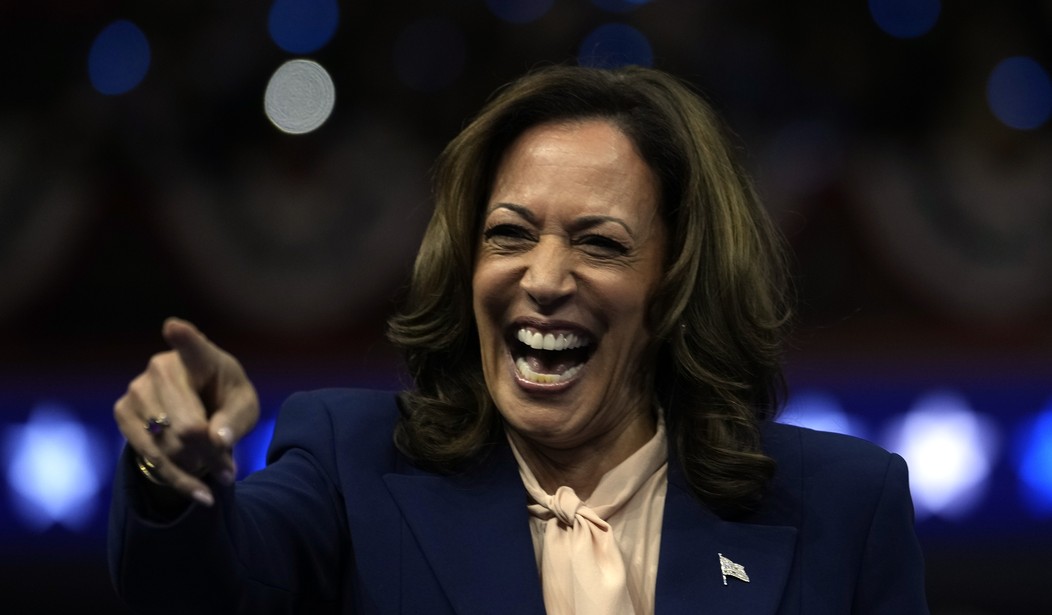If you're voting for Trump in November, it's easy to understand if you feel a tad discouraged right now. The surge of enthusiasm among Democrats has eaten away Trump's lead in the polls, turning his 3.1-point advantage in the RealClearPolitics national average into a 1.1-point deficit as of Tuesday. But is the Harris surge really an accurate reflection of reality? It might not be, and not for the reasons you think.
Over at the Washington Post, Phillip Bump took issue with Fox News's Jesse Watters for trying to "unskew" the recent polls, declaring that "Jesse Watters doesn’t know how polls work.” Bump criticized Watters for suggesting that polls showing a huge edge for Kamala Harris have a D+7 sample even though the country is closer to R+2, which means that Trump is much stronger than recent polls suggest.
Bump naturally relies upon convenient data from a political analysis firm from L2 that estimates Democrats have a +8 advantage in the country. It's worth noting that the highly reputable Gallup puts the country at R+2, or R+6 once independents are pressed on how they lean. Be that as it may, Bump also points out that pollsters typically weight their results to better reflect the actual makeup of the country.
Let’s say that you ask 100 Democrats and 80 Republicans how they plan to vote in an election, with 90 percent of each group picking their party’s candidate and 10 percent selecting the other party’s. By itself, that’s a 54 percent to 46 percent margin in favor of the Democrat. If you think, though, that the electorate will be 50-50? You can simply treat each Democrat response as eight-tenths of a response – what pollsters call ‘weighting.’ The result is a 50-50 race.
Ironically, that proves Watters' point.
Sean Trende at RealClearPolling says Watters may be wrong about the need to unskew polls but that doesn't mean there isn't a bias in the results right now. "Elections with electorates heavily favoring Democrats have occurred," he notes. "It’s not impossible that this will be one of them."
So what might really be happening?
"With all that said, there is a sound social science concept of which we should be aware," Trende explains. "In fact, it is particularly dangerous right now. It is known as partisan non-response bias. The idea is this: When events favor one political side or the other, partisans become more (or less) likely to take a poll."
According to Trende, the political landscape shifted after Biden's poor June debate performance. Republicans were eager to discuss the election, which led to a surge in their polling responses, making it a favorable moment for the GOP, akin to when Romney outperformed Obama in their first debate. However, Democrats have since become highly engaged, feeling relieved after narrowly avoiding a political disaster. With a new, exciting presidential nominee and a vice-presidential pick they support, Democrats are now enthusiastic about discussing the 2024 election, which could influence polling dynamics.
Indeed, as much as the polls shifted heavily in Trump's favor after the debate, many still argued that the election was close.
"This really does put a bit of an asterisk on a poll showing a D+7 advantage right now," Trende concludes. "It is reasonable to think that at least part of that edge could be due to an asymmetry in enthusiasm. What does this mean for people hoping to interpret polls objectively? That is a really good question."
Also for our VIPs: Why Did Anti-Trump Conservatives Abandon Conservatism?
Partisan non-response bias is something, Trende notes, that is nearly impossible to account for because "you can’t talk to people who didn’t respond to polls."
"While a surge in party identification can be an indicator, it could also be a manifestation of enthusiasm, as previously self-identifying independents decide the Democratic Party is for them after all," Trende explains. "Even worse, if that enthusiasm gap carries over to Election Day, it will probably manifest in actual poll results."
Sean Trende concludes that polls are just snapshots of the moment, and any partisan bias in responses should level out by September — at least until Trump's sentencing in New York, and who knows what will happen then. "We conduct [elections] by votes, and that’s the tally that ultimately matters."










